The oceans cover more than 70% of the Earth’s surface and provide a rich source of biodiversity, food, and life. We are still quite indifferent towards our oceans and seas, probably because it is largely unexplored. Still, it doesn’t give us the freedom to exploit it for our pleasures.
More than two hundred thousand recorded species reside in those waters and it is believed there are many more. The smallest microscopic life to the world’s largest animals traverses the blue waters. The oceans provide a livelihood to millions of people who are directly or indirectly dependent. Hence, it is so much important that we protect and conserve this beautiful ecosystem.
Having said that, we expect marine conservation to be part of the government function, and you will not find many startups or private organizations getting into this space.
That makes Terra Conscious a unique startup based out of Goa – India’s vacation paradise. The company promotes marine and coastal tourism by working with the local community and ensures tourists understand the varied aspects of marine conservation.
Puja Mitra, the founder of Terra Conscious, has set up a social impact enterprise with a focus on dolphins and their conservation. The company conducts dolphin-watching trips that are not based on adventure sports but in accordance with nature and respect for wild animals.
Here is an edited version/excerpts of our conversation with Puja. For the full discussion, please watch the video.
How was your journey like? How did Terra Conscious happen?
Early Career/Life
My journey was a little different in the sense that I never set out to study the environment. I was doing media in college and always wanted to write hoping I would be an environmental and social journalist.
An opportunity sent me off to Assam, in the northeast, where I worked on elephant conflict. Subsequently, I started doing a lot of work with a nonprofit organization there. I worked with tribal communities and wildlife conflicts.
I was very young, in my mid-20s, and at that age, I was very idealistic and wanted to change everything on the ground. I was also beginning to understand how privileged we are – the kind of life and opportunities that we had, while so many are denied that. I came to Hampi in south India after that and started working with rural livelihood development with an organization called The Kishkinda Trust. My exposure to local communities and livelihood development challenges through these work experiences, helped me to understand the ways in which I could support my passion for wildlife conservation and helping those in need and I wanted to find a way to blend both.
Dolphin Calling
I got the opportunity to move to Goa and work remotely with an organization called the Federation of Indian Animal Protection Organizations (FIAPO), based out of Delhi. They had launched a campaign to stop the establishment of dolphinariums (dolphin circuses) in India.
India, during that time under tourism development, was planning a model similar to Sea World and Dubai Sea Park. They wanted to have one in Delhi and Chennai. Can you imagine dolphins in an aquarium in Delhi? It would be a huge impact on resources to sustain such an establishment plus studies have shown that marine mammals do very poorly in captive situations, and it is an outdated and cruel way to observe these intelligent animals.
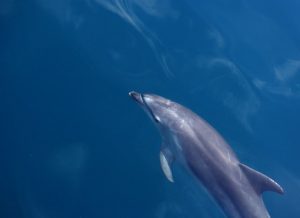

FIAPO hired me as a Campaign Manager and I didn’t know anything about marine wildlife because I grew up in Bangalore and my exposure was mainly to terrestrial wildlife. Just like anyone, I visited the coast for holidays and didn’t know much about it. But after running this campaign, I realized that not just me but a majority of the general public and the media were equally unaware at the time and perhaps even now.
When people think of wildlife in India, tigers and elephants occupy most of the discussion. People forget that dolphins and whales are given the same protection in India under Schedule 1 of the Wildlife Protection Act.
We have very few marine protected areas and it’s difficult to protect large mammals like dolphins. They move around, have large home ranges, are very social, and like to live in family groups called pods.
We launched a massive media campaign and we were trying to educate the public. I was fortunate enough to be guided by Dr. Lori Marino from the US. She’s one of the premier neuroscientists in the world who study cetacean (whale, dolphin, and porpoise) brains and has published several pioneering studies on their intelligence and emotional abilities. Cetaceans do very badly in captivity. They don’t live as long as they would in the wild. They suffer a lot of psychological and physiological injuries and disorders.
They have put animals like the Killer whales in SeaWorld in a swimming pool which is not even as big as the parking lot of that facility! Imagine an animal that is so large, active, social, and intelligent, living for 30 – 40 years going up and down in one small swimming pool. If you think lockdown is hard, imagine what that animal is going through and there’s no escape over there.
That hit me and I realized that there was very little that we knew about these animals and not enough was happening in our country to educate and sensitize the public about them, at the time. We have approx 7000 sq. km of coastline – the Arabian Sea in the west, the Bay of Bengal in the east, and the Indian Ocean in the south which is very rich in marine biodiversity. Yet we hardly learn about these species and habitats in school and even now most are unaware of the species that we have in India and their conservation status.
After the campaign, I got a chance to work for the World Wildlife Fund (WWF), I had also gone to the University of Oxford on a Commonwealth Scholarship and done my Masters in Conservation. There again it is a bit traditional. Conservation (at least 10-15 years back) is generally looked at through the prism of research and publication or non-profit organizations. Social enterprises were not talked about as much as they are today. Ecology is only a part of conservation, it is the foundation on which we must base conservation action, but conservation also includes communication, raising awareness, building relationships, understanding society, mindset, economic challenges, etc.
So when did you saw there is a problem in the Marine
I joined WWF-India, Goa as Senior Program Coordinator, and when my parents came to visit me at the time, and like all visitors, they asked, ‘What is there to do and see in Goa?.’ I said, ‘Oh, I just did a Dolphin campaign and I heard there is dolphin watching in Goa, so why don’t we go out? It would be nice to see them in the wild.’
And there again, privilege plays a big role because I come from a privileged background. I was fortunate enough to visit places abroad when I was young. We had gone for whale and dolphin watching experiences in New Zealand and the US. When I went to watch the same in India, I was able to compare the experiences and understand that there were significant gaps in how the trips were being conducted in Goa.
There was no signage, there was no information. You sat on the boat for 45 minutes chasing the animal and coming back. The boat operator had also not received any training in terms of how to operate the boat around the animals as well as had little or incorrect information about their physiology and habitat use, etc. I also found out that dolphin/crocodile tours are classified as ‘watersports’ under the watersport policy in Goa. However, these activities are completely different from parasailing, jet skis, etc, and so should not be classified as a sports activity as it is more a nature-based activity.
Dolphin watching is promoted heavily in Goa, and one of the hotspots is the Sinquerim bay in Candolim, North Goa, with approximately 280 operators working in one bay.
Boatman’s Perspective
Once I started reaching out to the boat operators and started to better understand their perspective and on-ground challenges, I learned that they did not want to conduct these trips in this way. There was a clear gap in training and awareness, but also there was pressure from tourists who had the wrong expectations from such experiences. They said, for most of the tourists, the attitude is ‘I paid money, I need a thrill, I have to see this animal and I need to get value for money.’ And this puts pressure on boat drivers to give them a guaranteed sighting.
The other sad part is that the dolphin watching is still sold as part of a one-day package. The boatman must finish the ride in 45 minutes and get the person back in time, to go for another activity. That makes it difficult for them to follow the ethical dolphin watching guidelines which essentially requires you to be patient and adjust to the animal rather than rush and chase.
Watching Marine Animal is a matter of Patience
If you want to watch an animal, you must watch it with patience. It might take one or two hours. And that is how the lives of animals unfold. For the animals, it takes them almost 15-20 minutes to get used to your presence. If you are very quiet, you might be lucky enough to watch them engage in different behaviors such as hunting, socializing, etc.
We must remember that marine mammals spend a very tiny percentage of their lives on the surface of the water when they come up to breathe. I realized very quickly that going through an institutional route is not going to be enough. We need to show that there’s a business value because at the end of the day caring about wildlife is a privilege and most people engaged in wildlife tourism depend on wildlife and habitats for their livelihoods. If your stomach is full, if you have a roof over your head, if you feel safe and secure, then you can look out and think – oh, I want to do something for nature and wildlife. If you’re just struggling to survive, as many of the boating community is, you can’t expect them to sit and think about the needs of wildlife over their own.
I’m 36 years old now and I have had so much influence in my life because of the education and exposure received through traveling and working in different parts of India. My home was full of books on a diverse range of subjects, and I was always encouraged to learn and question. My parents are very interested in wildlife and we have been exposed to nature-based activities from a young age. All of these inputs have enabled me to develop my passion and build a career in conservation.
If you ask me, the boat driver and the dolphin are equally exploited by different factors, and we are looking at how do we build that bridge, where we can make the experience equally beneficial to both. How do we make every segment of this delivery chain – government, marketing agent, hotel, boat driver, the consumer, everybody – sensitized and working together to enable safer seas for all?
That is how Terra Conscious was born.
How has Terra Conscious been able to help create awareness and sensitize people?
Catering to the Changing Mindset
In the last three years, we’ve been very fortunate to be in the right place at the right time. I think people have become more aware of the need for sustainable and responsible travel, lifestyle choices, and nature-based education. I see more and more young people reaching out and saying, ‘we want to travel ethically and be responsible in our choices and actions.’
Many parents worry today that their children are not getting enough exposure to nature and are spending too much time online and are disconnected from the simple pleasures of discovering the natural environs around them. I think our generation still remembers – growing up, going to our grandparents’ homes, and playing in the garden. I remember when I was growing up, there were no video games, and when you went out to play, you had to be creative and engage with people around you and your environment.
I think many people are realizing that we’ve got to reconnect, and we don’t want to live in a mad rush for money and material gain anymore.
Able to Stitch the Community Together
Terra Conscious has a very simple premise – we are community-based and believe in collaborative action always.
When we want people to change, we also have to prove that doing things sustainably actually works. If I can’t run my lifestyle and my aspirations on that premise, I have no business going to a boat operator and saying, “Why don’t you change your ways.”
The boat operator also has aspirations, has children, and wants them to have a better life. Yet, most people tend to dismiss their abilities and perspectives, and demand that they provide them with services and experiences at absurdly low prices. Sadly, that is how Indian mentality is because of our caste and class issues. I hope to help the next generation of the boat operator community to understand that they can be social entrepreneurs. They can build on the foundation set by their parents and help to create ethical, locally owned, and managed businesses.
Increasing Women’s Participation
It is sad that none of the boat operators we work with, have women owning, driving, or managing the boats. There are very few women in marine tourism even today, and I have a little bias in wanting to hire women and work with women because I feel we don’t get or give enough opportunities to women.
Although that is changing slowly, it still needs a lot more effort to ensure equal representation and participation in these traditionally male-dominated industries. It is a harder road to walk as a woman, as it is probably in every industry, and you face casual sexism daily, but it is important to keep going and stay true to your vision and change preconceived ideas and notions.
Make Revenue via Sustainable Business
Terra Conscious has a revenue model where we charge for our awareness-building, training, and experiential programs. We also provide consultancy services for conservation project development and execution. We take people out on nature-based experiences to educate them via experiential learning.
I feel that the practice of first making your money, and then doing philanthropy, is a very outdated way of looking at how we can all contribute towards creating a more just world. It should instead be the principle on which our business is based. If you can’t be ethical and fair, then there’s no point in doing wrong things, and then at the end saying “Oh I’ve made the money, and now I’ll do good – that doesn’t work!
I realized that if you get into it thinking, ‘What am I going to get out of this?’ then that is not going to help you build an ethical social enterprise. Being a socially responsible business to me means that you have to ensure more than just you, benefit from your efforts in a way that is fair, ethical, and collaborative.
Impact on Boatmen’s Lives
I asked my boat partners for their feedback on how they have found our model and if it has helped to improve their practices so that we can improve our processes and keep getting better. I thought initially that their main takeaway would be that they’re earning more money as we are paying them better, as our trips are priced according to the value both they and we provide to the customer. Instead, they spoke of the dignity and respect they have received from our Terra Conscious customers and felt that the customers value their knowledge and respect them.
I find it difficult to understand why most people don’t respect the boatmen and value their skills and experience because your life is in their hands. If you’re willing to pay megabucks to an airplane pilot, why can’t you pay the same to the boat drivers who are taking you on tourist experiences? If he/she doesn’t know the oceans, if he doesn’t know how to maneuver the boat, or operate safely, that could well be the last trip you take. We don’t value labor correctly in India and therefore people, in turn, don’t value their profession or skills unless it’s something that is socially seen as being upmarket.
I have been in Goa for eight years and it has taken so many years for the community to trust me right from the dolphin campaign to the WWF-IUCN project to my own business.
My husband Roshan Gonsalves, is a scuba diving instructor and is from the Konkan coast, and can speak the local language. We both worked together to build an equation with the boat operator community and it took them some time to understand and believe that we were there to support them and that we also were gaining from it. Nobody wants to feel like charity is being done for them. They just want to be supported in doing their job to the best of their abilities and given the right value for their effort. I find it harder in fact to convince people about climate change in most urban societies. For the communities that depend on the sea and engage with it every day, climate change is a reality they face daily. Every year, they lose more working days to bad weather and it’s increasing the challenges they face in sustaining their livelihoods. Goa has only an approximately 180-day operating season for marine activities. Last year, we had these untimely rains and floods in December, and then this year, we had the pandemic.
Now everyone is beginning to wonder about businesses that are based on ecosystems and wildlife. You have to take into account your ‘natural capital’ on which your business is dependent – protecting it then, becomes your business strategy, or else you won’t be able to sustain your enterprise if you don’t work to protect the habitat in which you work.
Educate and Sensitize People
Through Terra Conscious I’m trying to do this to help people realize the importance of our oceans and coasts. To know the people that live there and work there. To learn about the animals that live there and call it their home.
And there is you who’s connecting with it through different things. It could be an activity, it could be just going to the beach. You have to try and be equally engaged and conscious when you are in that space because otherwise, you are going to create a footprint that is going to be difficult to change.
We don’t do direct work with animals. I always tell people if you’re coming to Terra Conscious, don’t expect that you will be diving with dolphins. That’s not happening.
We see ourselves more as educators rather than just travel promoters.
Establishing a Connect with Biodiversity
At Terra Conscious, we look at how we can make biodiversity a part of our livelihoods and the way we think about our business, and what we want to do as a business. If we can do it in a way that supports biodiversity and supports local communities, it’s a win-win for everyone.
These days people are demanding more environmentally sustainable products. Even TripAdvisor has green listings, where they recommend eco-friendly stays and things to do.
Increasingly, I see a lot more being written about sustainability. Terra Conscious was featured in the Condé Nast list of 50 sustainable businesses in India and that I think, is great because it also shows that it’s the right time to give people more options like these. I see a lot of such startups coming up.
I’m working towards growing our education, travel, and impact programs and sensitizing as many people as I can.
What was the reason for this Brand Name?
I wanted a name that would work both as a name and action.
My idea is to be Terra Conscious. You always have to be aware of the planet whether it’s water, land, air, trees, or whatever it is that you’re passionate about. But you must be aware of it. Every little choice you make is impacting it and in turn, that is impacting you and your quality of life.
The idea was that can we create a business, which can help people become Terra Conscious in their day-to-day life. At the same time to create platforms to benefit those who don’t have access to this information or related opportunities.
Terra Conscious is a very young startup. This is our third year and we are constantly striving to improve our direction and vision. We hope it will grow and want to be in the edu-travel space.
Your logo has an animal, right? It’s a stingray if I’m not wrong.
It’s whatever people think it is actually.
The idea was three components – community, coasts, and conservation coming together. I was hoping it looks a bit like a marine animal too, many think it looks a bit like a stingray or manta ray.
Need to talk more about Oceans, Marine, and Conservation…
Marine is something people don’t talk about much in India. One thing I will say is – please talk about oceans and coasts more. It covers 3/4ths of our planet, and not understanding it, is not an option if you want to survive. We also need to use our social media access better. We’re using it to promote all kinds of nonsense and highlight all kinds of unnecessary issues that are very momentary. We are not talking enough about the ecosystems that we depend on to survive, to live. If you’re not even alive, you are not going to decide who’s right or wrong because you won’t be here. I think most people forget that they too are mammals, they are animals, they are species, they have habitat needs, and they have food, water needs, and survival needs.
Technology and money can only insulate you to a point. You can be the richest person in the world and can still be unhealthy. We already see with the pandemic what life has become for everybody. Climate change is so much worse. The disasters that we are reading about more and more today, will just keep coming. Look at what’s happening in California and all over the world right now. I think people are expecting climate change to be like one big tsunami that will come and drown New York or Mumbai. But it’s not. It’s a million little cuts.
Extreme weather patterns are going to affect your agriculture and make your food production more difficult. We need to think of it as an interconnected global system and do everything we can to amplify each other and support each other’s initiatives. And make sure that people understand how things connect and stop thinking in such a boxed, categorized way. You can be a techie or a dancer and still be a conservation person and contribute to protecting the environment! Conservation has to be a way of life for all of us, no matter where we are or what we do, after all, we only have one planet.
Let us wish Puja Mitra and Terra Conscious great success. Let us hope they continue to build an amazing ecosystem, which works in harmony with nature, and well being of the local community and creates a platform for us to learn & become better humans.
Here is the complete video of the conversation.

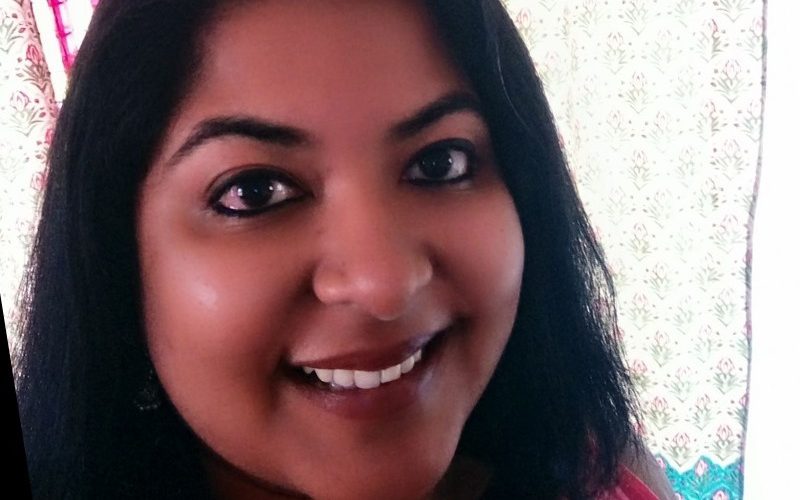
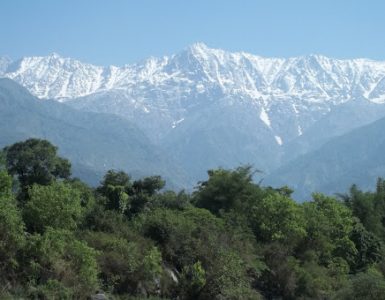
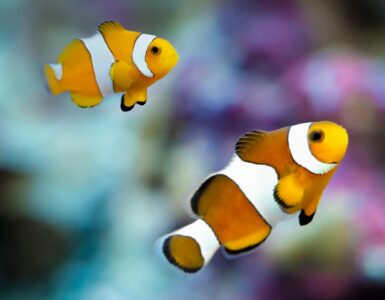
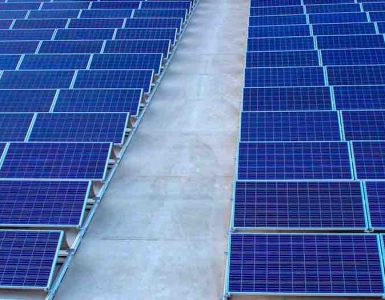
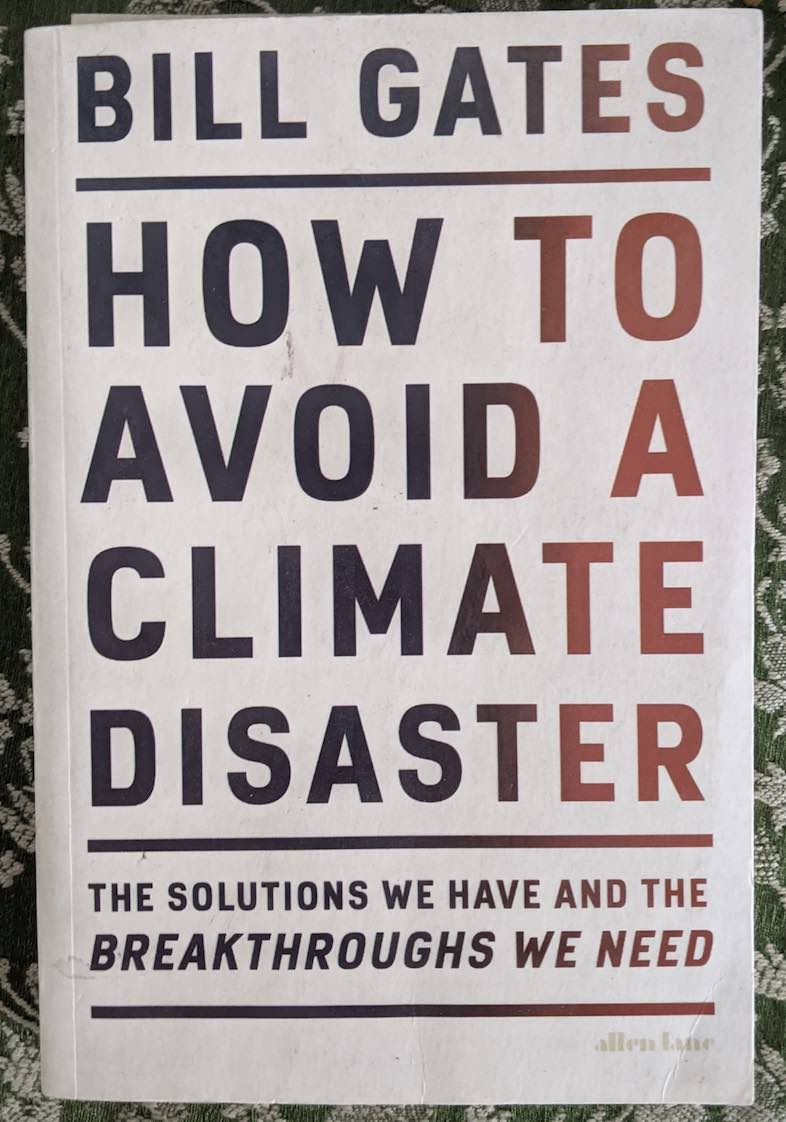

Add comment